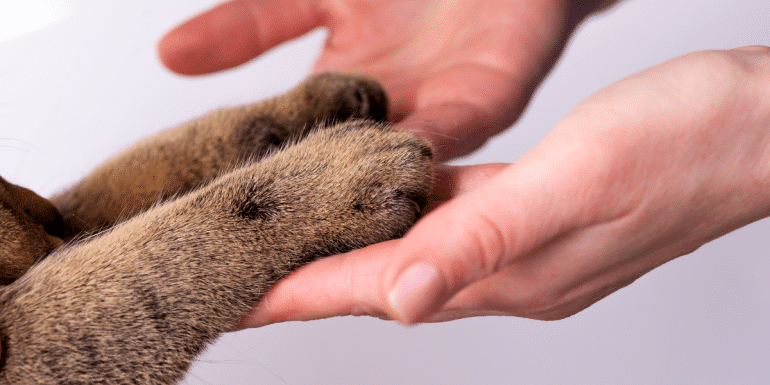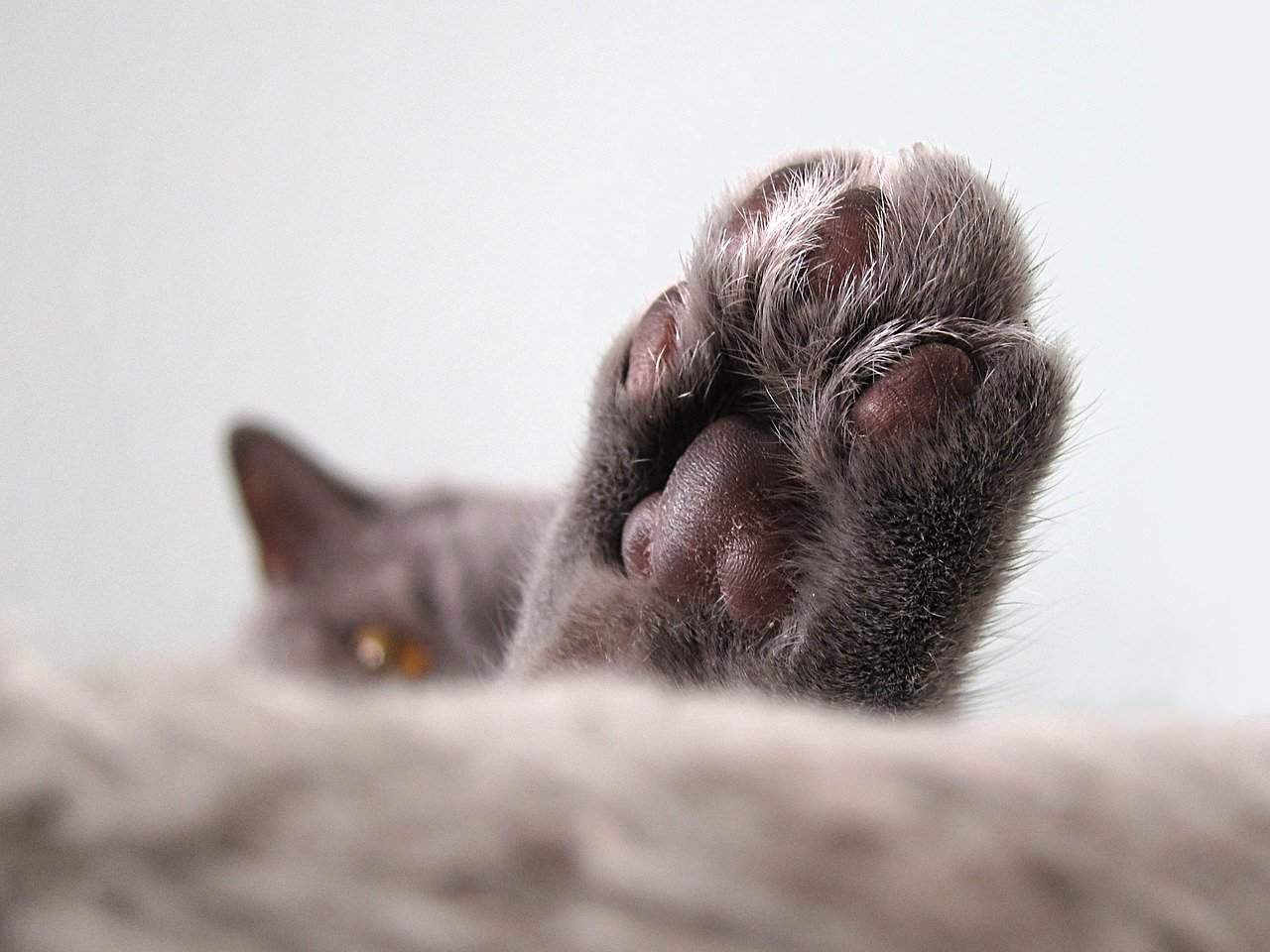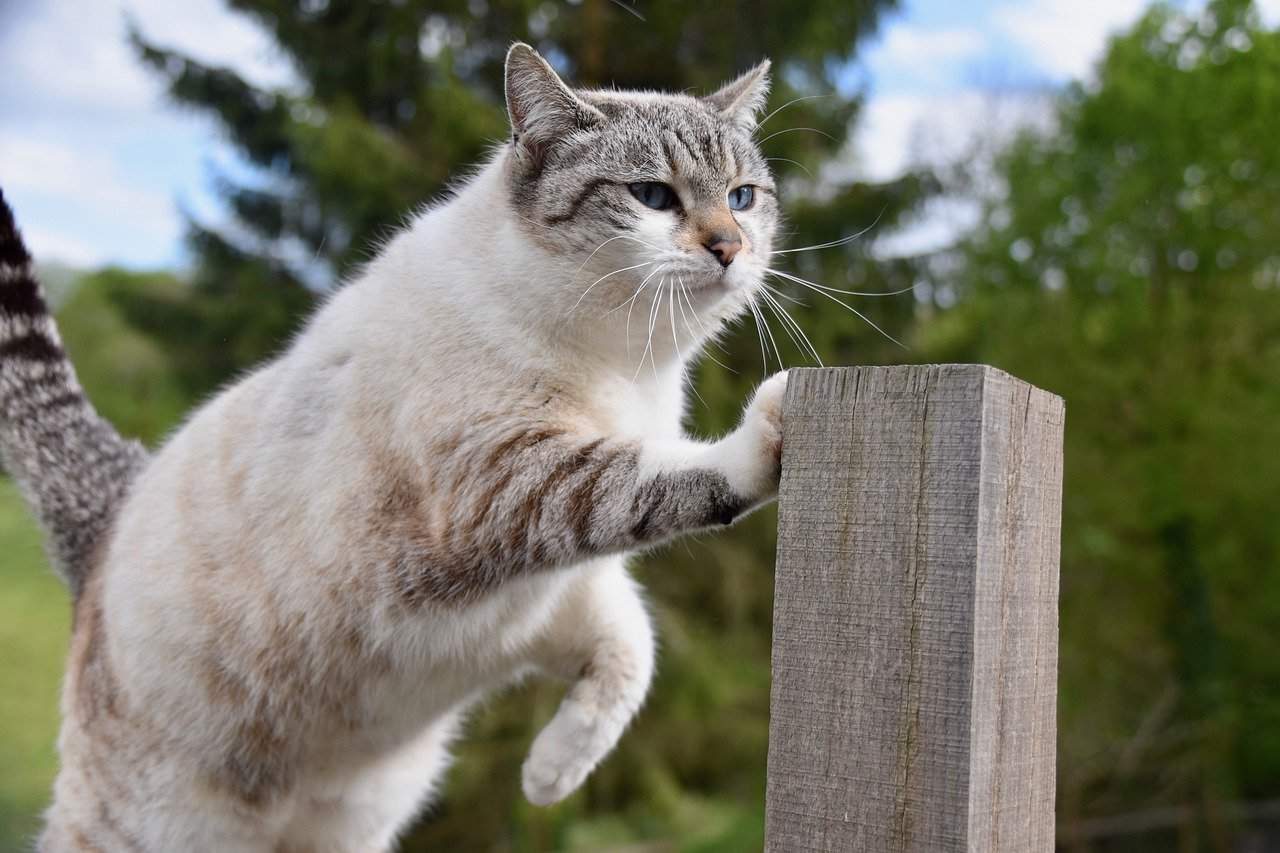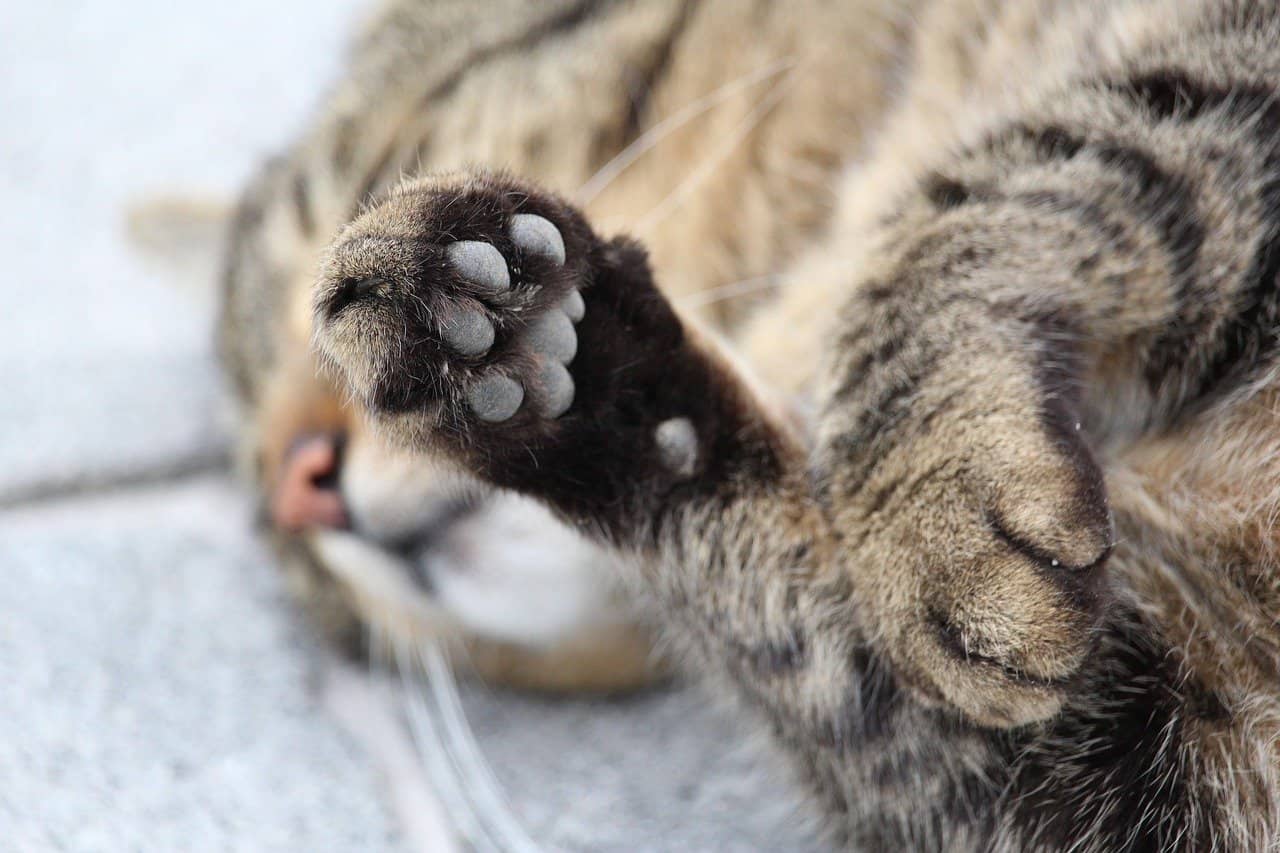Your cat’s squishy toe beans are too cute to resist. But what happens when you give in to temptation and take hold of your cat’s perfect little paws? In most cases, there are two possible outcomes. The first is that your cat pulls back their leg faster than you can say their full name. And the second is that you get a handful of your kitty cat’s claws. There are, admittedly, some cats that are so chill they don’t care what you do. But most of our feline friends agree on one important thing: they hate when you touch their paws.
Ear rubs and butt scratches are always welcome, but something changes when your hands move toward the paws. Cats can be anything from mildly unhappy to vehemently opposed to having their paws touched. Have you ever wondered why? Keep reading to find out.
Paws are highly sensitive.
Not only are cat paws incredibly adorable, they are also extremely functional. Paws serve as shock absorbers and are the only place where your cat can sweat. They’re also specifically designed to help cats move with speed and stealth. In addition to all that, your cat’s paws are covered in sensitive nerve receptors.
Those receptors allow feline paws to recognize changes in pressure, texture, and temperature. They can also detect vibrations in the ground to make a cat’s sense of hearing even more impressive. With all of those sensory abilities, your cat’s paws are highly sensitive.
Touching your cat’s paw isn’t the same as touching your friend’s hand. A simple touch, squeeze, or small pinch can make your cat extremely uncomfortable. It can even be painful. So when you reach for your cat’s paw, your gentle touches could be more like sensory overload.
It prevents them from defending themselves.
In addition to all those amazing sensory abilities, there’s one more thing about your cat’s paws that we can’t ignore. The claws!
While cats are technically predators, they are far from the top of the food chain. That means they’re also prey, and they have prey-like instincts they can’t ignore. One of those ingrained feelings is the need to always be prepared to protect themselves. Even if you and your cat are the best of friends, that doesn’t negate their instinctual reaction to be on guard.
When you grab your cat’s paw, you take away their best defense—their claws. They don’t like feeling vulnerable, even if they know they’re safe in your arms. Touching your cat’s paws makes them feel trapped, and it causes them a great deal of distress.
They’re “remembering” past experiences.
What cats can and cannot remember will depend on a number of factors. (You can read more about that here.) They do not have the mental capabilities to remember specific details about specific events. What they can do, however, is associate past experiences with strong emotions.
If you once tried to trim your cat’s nails, and it turned into a traumatic experience, you can be sure your cat won’t forget. They can’t think back and recall what day it was, what color shirt you were wearing, or exactly what happened, but they clearly remember the fear, pain, and stress.
Your cat linked those strong emotions with the physical act of you holding their paw. And because cats are smart, they aren’t interested in reliving that scary situation. They don’t like when you touch their paws, because past experiences taught them it leads to bad things. And cats that have been declawed can especially not like having their paws touched.
Paw Handling Tips
As much as we want to make our cats happy, there are times when we can’t avoid touching their paws. Most cats need their nails trimmed, and they sometimes need help keeping those paw pads clean. And if your cat hurts their paw, you need to touch in order to help.
When you have no choice but to touch your cat’s paws, follow these tips.
- Only attempt paw care when your cat is calm and relaxed.
- Try petting them in their favorite spot with one hand while your other does whatever you need to do.
- Offer yummy treats as positive reinforcement.
- Be as gentle as possible.
- Enlist professional grooming/veterinary help if your cat gets too stressed with paw care.






